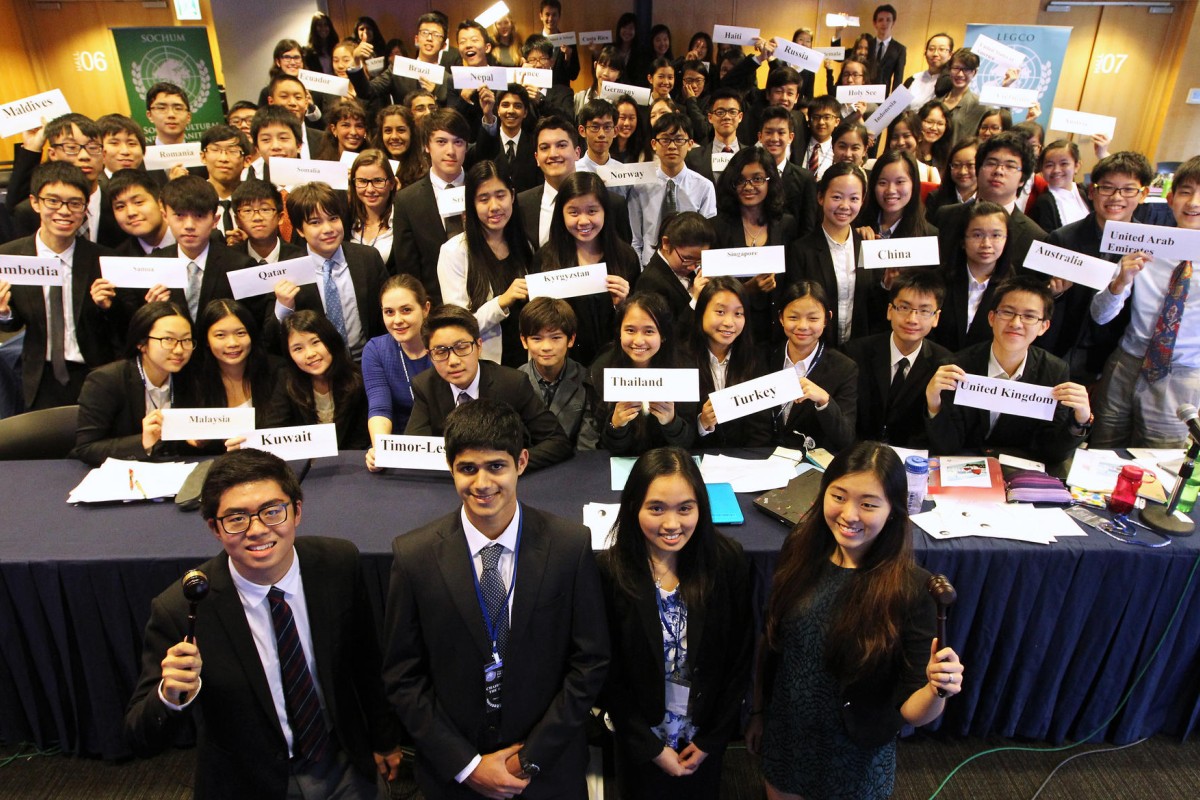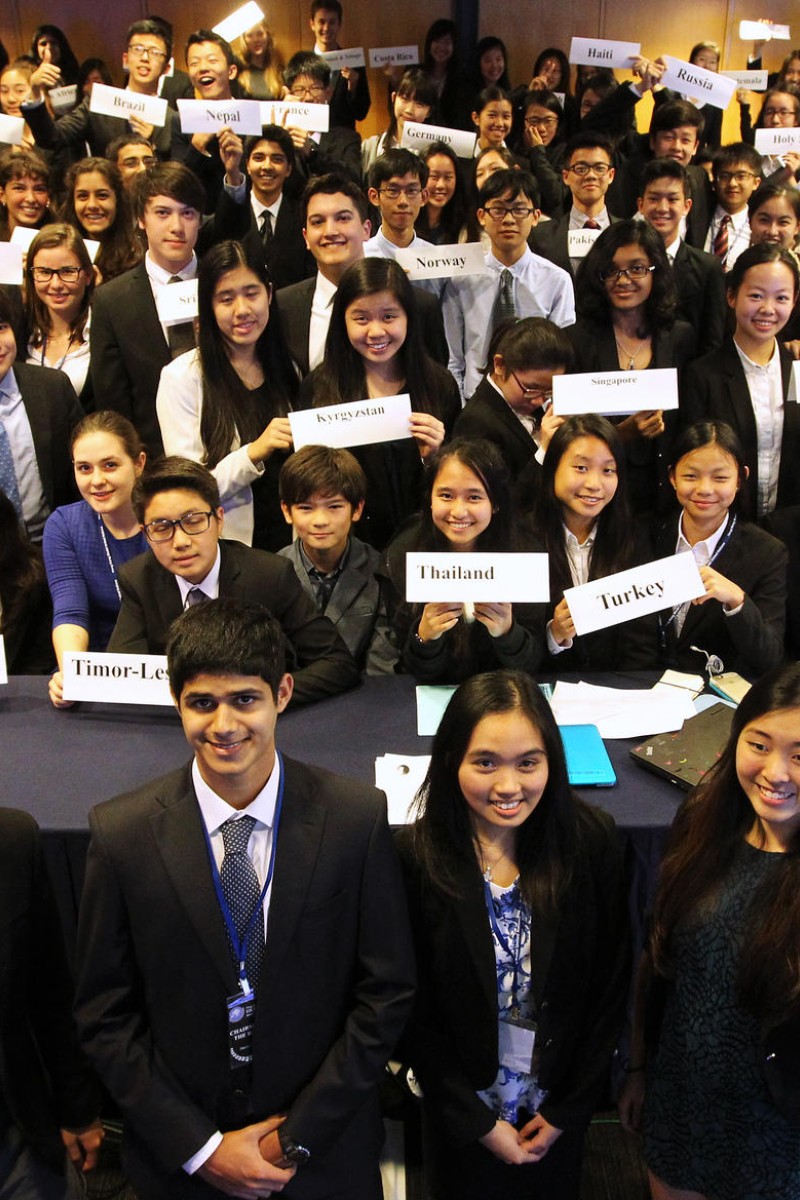 More than 320 students took part in the event, representing different countries and alliances across the globe.
More than 320 students took part in the event, representing different countries and alliances across the globe.If Hong Kong's lawmakers were all students, the bill granting universal suffrage for the chief executive election would, unsurprisingly, have been passed.
That's one of the things we learned after three days of heated debate at this year's Hong Kong Model United Nations (HKMUN). The Model Legislative Council, with 53 students playing the role of lawmakers, was a new addition to this year's HKMUN. And as expected, the student lawmakers ruled that Hong Kong should have more democratic elections.
"With Hong Kong politics polarised, we simulated Legco in order to engage students with local issues of importance," says Vincent Gudenus, HKMUN secretary-general, and a Year 13 student at Li Po Chun United World College.
Just as at the real-world Legco meeting, compromises were hard to come by at the meeting. Student lawmakers made plenty of suggestions, including increasing the number of people on the nominating committee and adopting civic nominations. But most of the amendments failed to get enough support to pass.
Mira Chow and Cody Wang, students in Year 11 and Year 12 respectively at South Island School, teamed up to play the role of Legco's president, Jasper Tsang Yok-sing. They said it was particularly challenging to guide the "lawmakers" to a conclusion.
"As the president, it is my responsibility to prevent arguments from going around in circles, which was exactly what happened," says Cody, who is also a member of the Hong Kong national public speaking team. "In the end, I had all lawmakers stand in a circle in which only one person could speak at a time. This helped the discussion."
The debates were heated, but discussions were held in an orderly manner. There was one student who asked if he could throw things in the council. "We told him there are only three things that you can throw in the council," says Mira. "Arguments, ideas and words."
The final day of the HKMUN leaves delegates wanting more
Daniel Monteiro, chairman of the HKMUN student board and a Year 13 student at South Island School, says the organisers also invited a real lawmaker, Kenneth Leung Kai-cheong, to give advice to the students. He says Leung's policymaking experience helped the students learn how things work in important debates.
This year's HKMUN, which ran from last Thursday until Saturday, was held at Hong Kong Science Park. It was the first time the event was not held at a school campus. The bigger venue meant more than 320 delegates attended, a new record.
As well as Legco, other new political organisations were "modelled", including Nato, where delegates got to tackle issues such as cyber warfare. Meanwhile, the model General Assembly discussed the global impact of labour migration, and the model Security Council debated how best to deal with Islamic State militants.
The organisers also took steps to challenge the delegates to think on their feet. "Unlike last year, we removed access to computers in formal debate to further focus and [encourage] real world policy making," says Daniel. As if solving the world's problems wasn't hard enough.
